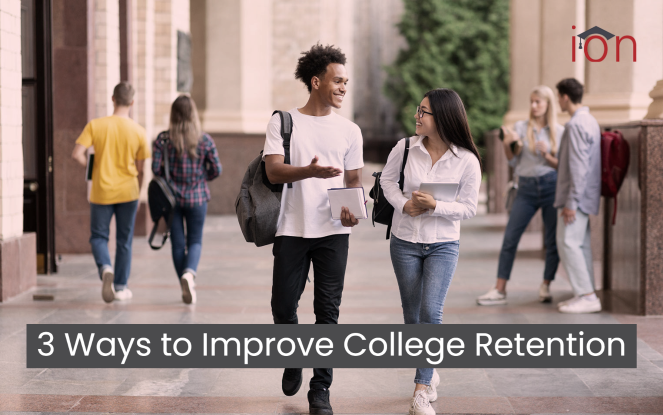64 percent of all students who entered a four-year Bachelor’s degree program in 2014 graduated in six years. (Source: nces.ed.gov and educationdata.org). While that’s an improvement from twenty years ago, it’s not a good sign we measure the success rate of a four-year program over six years.
When schools focus on improving retention they also improve their enrollment numbers and graduation rates.
College retention problems mirror employer retention problems.
Employers in multiple sectors are struggling with a shortage of skilled workers and high turnover rates. The issues impacting colleges are also impacting employees: mental health issues, financial stress, and basic needs such as food, housing, transportation, and childcare.
A complete overhaul of the American education-to-employment process isn’t necessary. Colleges can provide simple changes that would help students reach their dreams and go on to become productive workers.
1. Prioritize Mental Health Support Services
College is much more than an academic challenge. According to the Lumina Foundation-Gallup State of Higher Education 2022 study, the number one reason students consider dropping their program is due to “emotional stress.”
College is supposed to be the best time in a person’s life, yet “44% of students enrolled in a postsecondary education program have considered ‘stopping out’ in the past six months.”
The mental health crisis on college campuses has been negatively impacting college retention since before COVID-19. Students need help to build resilience, cope with stress, and work through their mental health issues.
Services like META Teletherapy specifically breaks the barriers preventing students from seeking help: stigma, cost, and scheduling. Schools that offer mental health support that’s quick and easy to access set their students up for success.
2. Provide Student Loan Repayment Support
The cost of tuition versus the income after graduation is the financial risk students take when they choose a college. Many students are uncertain if the risk is worth it and are likely to drop out if they don’t believe they can graduate within four years.
Offering proactive student loan repayment support shows students their options after graduation, and reminds them that they’ll have support from services like IonTuition. We reassure borrowers all the time that they’ll be okay because we can help them find sustainable repayment plans.
3. Help with Basic Needs
Most colleges that cater to non-traditional students market the flexibility of their programs. Issues such as finding childcare shouldn’t prevent a person from earning a degree.
Likewise, basic needs such as food, housing, and transportation should at least be acknowledged by colleges as barriers keeping students from completing their coursework. Offering support in those areas can go a long way to improve college retention by showing support to your community of learners.
Improve Education-to-Employment by Connecting Educators to Employers
If we want a country where college graduates are valuable to employers, then colleges should design programs that fit employers’ needs. A college graduate should be immediately employable, otherwise, employers will stop requiring college degrees and higher education will lose its value.
Schools interested in improving their retention can contact sales@iontuition.com.

